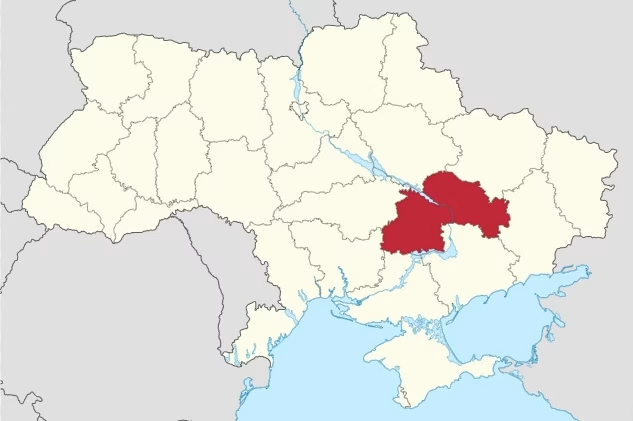Ukrainian forces have confirmed that Russia’s military have entered Dnipropetrovsk, Ukraine’s eastern industrial region, and is trying to solidify their position.
Viktor Trehubov of the Dnipro Operational-Strategic Group of Troops informed this is reportedly the first attack of its kind, in terms of the large scale, in the Dnipropetrovsk region. But, he emphasised that the progress of the Russians had been halted.
Despite Russia’s claims throughout the summer of its advancement—Russian officials had previously asserted that an offensive in Dnipropetrovsk had begun as early as June—Ukrainian reports suggest that their forces have barely breached the border.
If Russian forces were to establish a stronghold in Dnipropetrovsk, it would deal a significant blow to Ukrainian morale, particularly as US-led diplomatic efforts to end the war seem to be faltering. This comes despite recent high-level meetings, including the Alaska summit meeting between US President Donald Trump and Russian President Vladimir Putin.
Russian has occupied the villages of Zaporizke and Novohryhorivka, according to the Ukrainian DeepState mapping project on Tuesday. However, this claim was denied by Ukraine’s armed forces, asserting that they still control Zaporizke and that active hostilities continue near Novohryhorivka.
Unlike the territories of Donetsk and four other eastern regions, Russia has not officially claimed Dnipropetrovsk. Nonetheless, its forces have targeted key cities, including the regional capital, Dnipro. Prior to the war, Dnipropetrovsk was Ukraine’s second-largest centre of heavy industry, after Donbas, which includes the Donetsk and Luhansk regions.
While Russia’s territorial progress has been slow and costly in terms of casualties, they saw some recent gains in Donetsk. Earlier this month, a small infantry unit made pushed through 10 kilometres beyond Ukraine’s defensive lines near Dobropillia, but reports suggest that their advance has now stalled.
Russian President Putin has reportedly indicated to Trump that he would be open to ending the conflict if Ukraine surrendered control of the areas it still holds in Donetsk. However, many Ukrainians remain sceptical of Putin’s true intentions. Col Pavlo Palisa, deputy head of Ukraine’s presidential office, warned in June that the Kremlin likely aimed to occupy all Ukrainian land east of the Dnipro River.
The EU’s foreign policy chief, Kaja Kallas, has cautioned that any peace deal involving the handover of Ukrainian territory to Russia would be a “trap.” “We are forgetting that Russia has not made one single concession and they are the ones who are the aggressor here,” she said.
Despite these warnings, Trump, after meeting both Putin and Ukraine’s President Volodymyr Zelenskyy, expressed hope for a summit between the two leaders. However, by the end of last week, hopes for a breakthrough appeared to have faded.
Russian Foreign Minister Sergei Lavrov dismissed the idea of a summit, stating that “the agenda [for a summit] is not ready at all” and no meeting was planned. He also insisted that any discussions regarding future security guarantees without Russian involvement were “pointless”.
Meanwhile, US envoy Steve Witkoff stated on Tuesday that they are in constant communication with the Russians and he would meet with Ukrainian officials in New York later this week.
President Zelenskyy has called on his Western allies to increase efforts toward securing future security guarantees in case a peace deal is reached. He met with the head of Britain’s armed forces, Adm Sir Tony Radakin, in Kyiv on Tuesday, and a spokesman for the UK Prime Minister confirmed that the UK would be ready to deploy troops once hostilities end.
German Chancellor Friedrich Merz remarked that security guarantees for Ukraine would focus on enabling the Ukrainian army to defend the country in the long term. Merz also emphasised that Zelenskyy had expressed willingness to engage in talks with Putin, stating, “If the Russian president is serious about putting an end to the killing, then he’ll accept the offer.”


